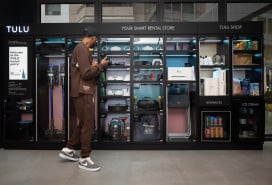What it takes to buy an apartment in a FSBO

For a seller, going the DIY route (a.k.a. selling without a broker) means they can avoid paying a 6 percent fee split between the broker and the buyer's broker which, in NYC, could amount to hefty savings. The fee is usually baked into the asking price, so if a seller is going broker-less, the asking price will typically be lower — good news for the buyer, of course.
We caught up with one recent apartment-hunter who bought a co-op from a seller without a broker. Robert, who bought a two-bedroom in a mid-sized doorman building in Yorkville, thinks he saved around $40,000 thanks to the fact that both he and the seller chose not to use broker. He may have had a bit more work to do, but in the long run, he says, it was worth it.
Were you specifically looking for a FSBO apartment?
No. About a year before we bought we had been casually looking at some apartments with a broker. Then we just started looking on StreetEasy for open houses and found this listing which was for sale by owner.
What were some of the biggest challenges to buying an apartment without the guidance of a broker?
The first was getting the right mortgage. The mortgage broker we originally picked couldn't give us the loan because of our building's insurance plan. Apparently, sometimes management companies that have several different co-op properties under management use a pooled insurance plan. Rather than insuring each building with a separate policy, the company purchases one policy that covers all of the properties. I had no concept of this until late in the game, and as soon as I asked my original mortgage broker if he was okay financing a purchase in a co-op building with pooled insurance, he said he could no longer fund my loan. More precisely: he had no idea what pooled insurance was until he asked his supervisor, and this supervisor told him they couldn't go forward. I ended up with Wells Fargo, because Wells was actually the underwriter of the insurance, and so they had no problem with this arrangement.
I'm not quite sure a broker would have known, or helped, in that case. The lawyer really was the one who steered me in the right direction.
The only other challenge is putting together the board package.
Right, so how did you know how to do that?
The management company gives you an enormous checklist. And by that point you've done a tremendous amount of paperwork for the mortgage; but they want even more. As a reasonably intelligent adult, I think you can handle it.
I found myself reaching out to the management company with questions at times, and they were helpful.
Our building had the usual expectations -- they want to see two years' worth of liquidity payments after you close, they want personal and professional references. And, yes, I had to provide them with more personal information than I've ever given. They wanted access to some obscure tax documents for investments, but our financial advisor explained everything to us.
I'd say it took about two weeks to get all the documents and forms together.
Oftentimes a seller's broker will recommend a lawyer. How did you find one?
My lawyer was recommended to me by the seller's lawyer. He was familiar with the building, so it all went very smoothly.
What advice would you give someone who's doing this?
Co-ops are unusual, and getting financing for them is much different than for a condo... When you're looking for loan, make sure that the bank you're involved with can and will fund your building. Ask those questions upfront. But honestly, if you have a good lawyer and a knowledgeable mortgage broker, I don't really see why you'd need a broker.
Do you think the fact that you didn't have a broker either helped seal the deal?
I do. We were valuable to the seller because he didn't have to pay commission for our broker either. I know there was another bidder who'd come in with a broker, and the fact that we weren't tied to one helped us negotiate. We actually also increased the amount of the offer and paid the transfer taxes for the seller. It didn't mean more cash upfront, but it sweetened the deal.
Related:



























